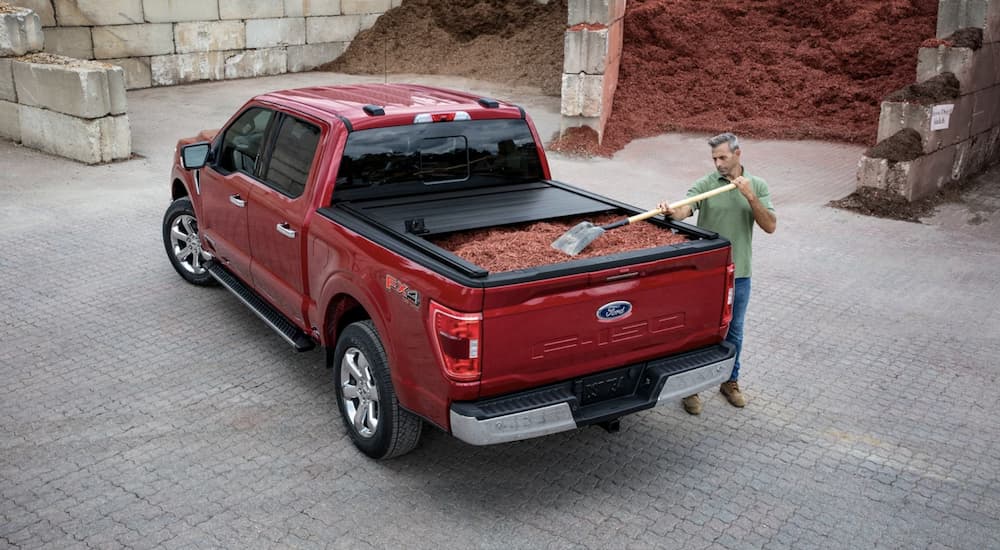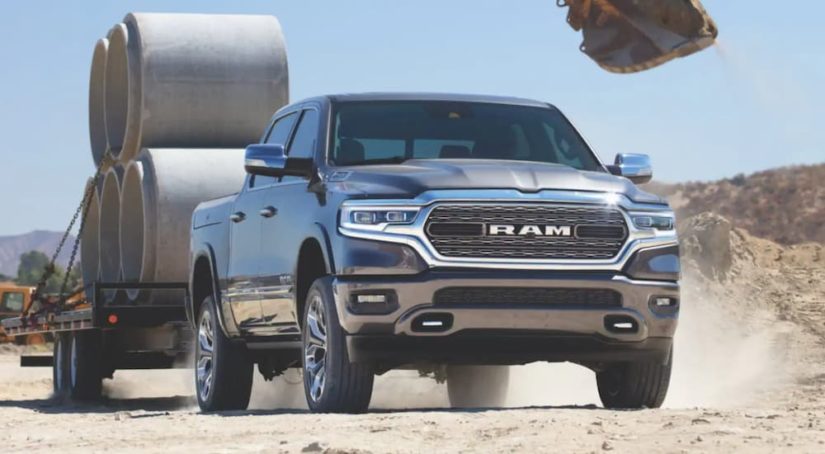If you’ve filled up your gas tank, then you’ve likely noticed a layout of fuel options ranging from regular (87) to mid-grade (typically 89 octane) to premium (91 or 93 gas). But then, at some gas pumps, you might have noticed a different sticker for a separate type of fuel – diesel fuel. It’s slightly removed from the cluster of the others and has a different color label. That’s because diesel is completely different from regular gasoline. The engines associated with both are entirely incompatible with one another. If you tried to put diesel in a gas engine or gas in a diesel engine, you’d have an issue (possibly a hazard, too).
Diesel cars, however, have many benefits, and trucks are one of the more common types of cars with diesel engines. With used trucks being such a popular buy today and people looking to get more value out of their dollars, searches for used diesel trucks for sale have been on the rise. If you’ve been curious about what exactly diesel is and whether or not you should consider getting a vehicle with a diesel engine, we’ll break it down for you. Here’s everything you need to know about diesel fuel and whether or not it’s right for you.
Diesel Vs. Gasoline Truck: Which Is Right For You?
What Exactly Is Diesel Fuel?
Diesel fuel is named after Rudolf Diesel, the engineer who invented the compression ignition engine. Diesel is commonly used in freight trucks, trains, buses, boats, military engines, farm equipment, and some consumer vehicles. Both diesel and gas start as crude oil mined from the earth. Both types of fuel also use internal combustion engines. It’s their respective refinery processes that make them different. In the end, diesel winds up much thicker than gasoline does. For this reason, it takes much longer to burn, meaning a little goes a long way (part of its fuel economy perk, which we’ll get to.)
Today, new forms of diesel are being offered, known as biodiesel. These are made from non-petroleum sources, such as vegetable oil, making them a more sustainable option than regular gasoline or traditional diesel.

The Pros And Cons Of Diesel Fuel
Pro: Better Fuel Economy
As we mentioned earlier, because diesel fuel is so thick, it takes longer to burn off than gasoline, meaning you can get more miles per gallon of diesel fuel than gasoline. Some reports state that diesel fuel can go up to 20 and 30 percent further per gallon than gasoline, resulting on average in roughly four to five more miles per gallon in a diesel car versus a gasoline car. So, say your pickup truck’s fuel tank can hold 20 gallons of fuel. If you get five more MPG of diesel than gasoline, you could get around 100 more miles per tank on a diesel engine compared to a gas one.
There’s another reason you get better mileage out of a diesel engine. Diesel works at a consistent temperature, which allows for better fuel economy. Meanwhile, the temperature fluctuations of gas engines can lead to poor fuel economy.
Con: It’s More Expensive + Rare
Diesel fuel might go further per gallon than gasoline, but when it is time to fill up, you’ll notice that little dollar ticker going very high. Diesel is more expensive than gasoline. Part of this has to do with the fact that diesel gets taxed at a higher rate than gasoline. (Fun fact: diesel was less expensive than gasoline until around 2004).
Furthermore, only some gas stations carry diesel, but they all do carry gas. When it’s time to fill up, you might need to search a little longer to find a gas station offering diesel, and then you might be subject to a hefty bill. However, keep in mind that the tank will take you much further than a gasoline one, so it nearly evens out.
Pro: Better Towing
Diesel engine trucks boast much more impressive torques than gasoline engines. Torque, in plain terms, has to do with the engine’s rotational force – specifically, how much of it is available as soon as an engine must exert itself. Higher torque means more towing capabilities. If you are going to be towing often – and towing large items like RVs, campers, or boats – you need more torque. In that case, you’ll probably want a diesel engine.
Con: Worse Acceleration
While diesel engines excel in the torque department, they typically show slower acceleration than gas engines. Diesel engines boast high torque but low horsepower. If you want a car with a lot of get-up-and-go that can go from 0 to 60 rather quickly, your diesel vehicle won’t be it. However, this lower horsepower won’t be a major concern for drivers who need to tow heavy items and don’t need to make very long drives.
Pro: Longer lifespan
Diesel engines are notoriously more robust than gasoline ones. They have more heavy-duty components and fewer parts (in fact, they don’t use spark plugs), meaning they’re prone to fewer complications and breakdowns. You could get many years out of a diesel engine vehicle compared to a gasoline one.
Con: Harder + Pricier To Fix
Here’s the catch with the diesel engine: it might not need repairs often, but you could be stuck with a big bill when it does. There aren’t as many mechanics skilled in diesel engines or comfortable working on them. That means the few that there are can and do often charge a pretty penny for their services. And the parts of diesel engines, though they don’t break down often, are expensive to replace and repair.

What About Sustainability?
There are mixed opinions on whether or not diesel is better or worse for the environment than gasoline. Here’s why: traditional diesel does reportedly emit more pollutants than gasoline. However, as mentioned earlier, there is now biodiesel, which isn’t made from petroleum and is easier on the environment. These more planet-friendly forms of diesel are a bit newer, so many diesel cars on the road still carry the old type of diesel engine. Upgrading those trucks to accommodate diesel from non-petroleum sources would involve some costly engine adjustments.
Which Trucks Have Diesel Engines?
Many trucks that have diesel engines may also come with standard gasoline engines. The models have several engine options, and one of those will be a diesel engine. These will often be found in full-size pickups because people tend to push the towing capacities of these to their limits. Some trucks that have diesel engine options include:
- The Ford F-150
- The Ram 1500
- The Ford Transit
- The Chevrolet Silverado
Now that you understand what exactly diesel is and how it works, you can see that there isn’t a straightforward answer to which is better – gasoline or diesel? Each engine type serves its purpose and is suitable for specific drivers. Those who need to tow heavy items and don’t care about going fast will probably want a diesel engine. They should be prepared to pay a larger bill when it’s time to fuel up – but will enjoy fewer stops for fuel. Those who are more concerned with acceleration and need to reliably know every gas station will carry the fuel that they need might prefer a gasoline vehicle. Ironically, with so many vehicles – including pickups – moving in the electric vehicle direction, the gasoline versus diesel argument could one day be a thing of the past.



